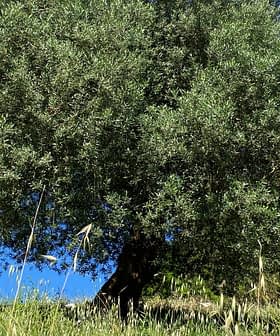How olive oils are presented and described in supermarkets has a tangible impact on sales, the results of a new study reveal.
According to Juan Vilar Strategic Consultants, about 65 to 75 percent of olive oil for domestic use is sold in supermarkets and hypermarkets globally.
As a result, how the olive oils are presented makes a big difference for the production value chain and consumers.
Juan Carlos Marín, the head of grocery stores at Grupo Alcampo, and Juan Vilar carried out an experiment in which olive oils were placed into a separate aisle at a supermarket and accompanied by informational signs.
See Also:Olive Oil Prices Hit Record Highs in Spain After Unprecedented Market EventsThe supermarket, run by Grupo Alcampo, is located in Linares, Andalusia, and receives an estimated 3,000 customers daily. The store sells 650 different olive oils from 53 brands, both local and international.
In the aisle, the olive oils were divided by category and accompanied by informational signage and QR codes detailing where the olives were grown, information about the producer, the olive varieties used in the oil and the cultivation method.
After a year of this setup, the study demonstrated that customers were willing to pay 5.5 percent more for olive oil and bought 18 percent more olive oil than shoppers in regularly laid out Spanish supermarkets.
The figures were even higher for extra virgin olive oil in the setup, with customers purchasing 13 percent more extra virgin olive oil and spending 5 percent more than in regular supermarkets.
“The result of the description, explanation and information presented to customers about olive oils generated greater loyalty on the part of the consumer, a willingness to pay for the value of the product based on its attributes, greater consumption of the product and resulted in an increase in sales,” Vilar told Olive Oil Times.
However, the conclusions of this study go beyond olive oil sales and shed some light on how people shop.
In specialty stores and small businesses, vendors generally take the time to explain the value of their products to the consumer, which allows them to make a more informed decision. This is known as active shopping.
On the other hand, most consumers making purchases at supermarkets are engaged in passive shopping. They are provided with vast amounts of choices with little information besides the food package design and price.
A consumer survey from the University of Southern California indicated that while 64 percent of supermarket shoppers in the United States read nutrition labels, many were unable to use that information to distinguish between healthy and unhealthy food.
Instead, the survey found that shoppers rely on item location, packaging, color and marketing buzzwords when making their purchases.
While their study focused specifically on olive oil, Vilar believes separating any type of specialty food from cheaper alternatives and explaining its value to consumers would result in more sales and higher margins.
“What I would do within the supermarkets would be to increase the staff of people who are dedicated to explaining the products in an accessible, simple and fast way,” he concluded. “In any product, not only in olive oil, when you describe the product well, the result is always an increase in sales.”









